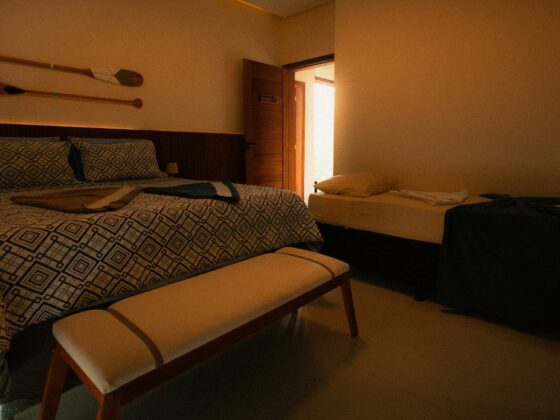
Short-term rental (STR) real estate in hospitality has seen significant growth in popularity due to the rise of platforms such as Airbnb and Vrbo. The sector has expanded rapidly, with the US STR industry reaching $64 billion in annual revenue in 2023. This surge is driven by increasing consumer preference for unique, flexible accommodation options. Travelers seek personalized experiences and STRs provide many choices, from city apartments to countryside homes.
This growing demand also offers an exciting and rewarding career path. Professionals in this sector manage a wide range of properties, ensuring exceptional guest experiences and optimizing rental income. The dynamic nature of STRs allows for creativity in marketing and operations, attracting those who enjoy innovation and customer interaction.
There is also substantial financial potential, making it appealing for those interested in combining hospitality with real estate investment.
What is STR real estate in hospitality?
Properties rented out for brief periods, typically less than 30 days, are known as short term rentals or STR. The business model of these properties, promoted by vacation rental platforms such as Airbnb, Vrbo and Booking.com, has significantly increased accommodation options for travelers.
Property types for this temporary accommodation include urban apartments, suburban homes, beachfront villas and countryside cottages. They offer flexible lodging choices that range from single rooms to entire homes, ensuring unique and personalized stays.
With 7.7 million listings worldwide, Airbnb dominates the short-term rental market, enabling property owners to earn higher rental income than traditional long-term leasing. These platforms also offer free marketing exposure, attracting customers seeking accommodation from single rooms to entire homes.
This flexibility appeals to travelers looking for unique stays that reflect local culture or offer specific amenities not found in hotels. As a result, many real estate investors have shifted from conventional leasing to STR properties, capitalizing on the growing demand for personalized and alternative lodging options worldwide.
Benefits of owning STR real estate
Being the owner of a short-term vacation rental property offers numerous advantages and can be a lucrative investment. Some of the benefits to consider include:
- Flexibility: short-term rentals provide versatility in occupancy and usage. For example, if you own a vacation home, you can stay there during off-peak seasons and rent it out during busy tourist months, maximizing personal enjoyment and rental income
- Higher-income potential: compared to a traditional long-term vacation rental property, short-term rentals often generate more revenue per booking due to being able to charge daily rates and nightly rates
- A broad range of guests: STRs attract tourists, business travellers, families and solo adventurers. This reduces dependence on a single tenant profile, ensuring a steadier stream of bookings throughout the year
- Tax benefits: owners of temporary accommodations can take advantage of various deductions on their returns related to maintenance, utilities and depreciation. For instance, expenses incurred for cleaning services between bookings and the cost of furnishings can often be deducted, reducing overall taxable income
- Personal use: unlike long-term rentals, STRs allow owners to use the property themselves for vacations or personal getaways. This flexibility can significantly boost personal enjoyment and reduce travel costs
- Demand: the market for temporary accommodation continues to grow, driven by travelers seeking unique experiences
- Short leases: with brief stays, there’s less risk of owners being stuck with problematic tenants or long-term vacancies
Challenges of STR real estate
While they offer the potential for high returns and flexibility, these properties also come with several drawbacks that potential investors should consider. For example:
- Regulatory challenges: many major travel destinations face stringent rules regarding STRs, including zoning laws, safety standards and sanitation rules. These regulations can also impose occupancy limits, which may restrict the number of guests allowed at a time
- Unstable income: seasonal fluctuations, such as the weather and holidays, can impact the demand for STRs. While high seasons can yield substantial earnings, low seasons may decrease occupancy and income
- Initial investment costs: starting an STR from scratch requires significant startup expenses to furnish and equip the property
- Ongoing maintenance expenses: unlike long-term rentals, where tenants often cover utilities, STR hosts are responsible for monthly upkeep costs such as electricity, water, internet and cleaning services
- Challenges in financing: securing investment for STRs can be more complex. Investors may need to explore alternative financing options such as personal loans or specialized lenders catering to the short-term rental market
- High turnover and maintenance costs: short-term rentals often experience increased occupancy changes, requiring frequent cleaning and upkeep
- Potential for property damage and theft: STR market properties are susceptible to higher risk than long-term rentals
A degree program that covers real estate will enable you to learn how to successfully overcome these potential challenges posed by STR hospitality real estate.






